Comanchero ‘road captain’ resigns from gang, court hears
He was a senior member of the Comanchero bikie gang’s ACT chapter but now Jirawat McCallum claims he has left the club and wants a fresh start as he awaits the birth of his first child

Canberra Star
Don't miss out on the headlines from Canberra Star. Followed categories will be added to My News.
- ‘Please don’t send me back to daddy’
- Comanchero deportation imminent
- Canberra’s top crypto suburbs revealed
- Cinema coming soon to Gungahlin
The alleged “road captain” of the Canberra Comanchero claims he “resigned” from the bikie gang, a court heard.
At a sentencing hearing at ACT Supreme Court on Tuesday, Jirawat Marrotnok McCallum gave evidence that he had informed the gang’s ACT president, Pitasoni Tali Ulavalu, he was leaving the club about a month ago.
“The president came to visit me in jail and I told him face-to-face that it was no longer for me … because I have a daughter on the way and I want to do right by my family and be there for them,” he told the court from the witness stand.
The court heard the club had accepted his “resignation”.
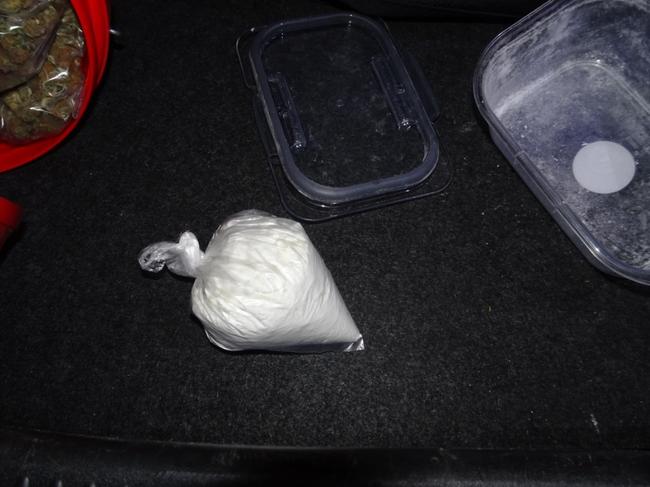
The 31-year-old said he was acting independently of the gang when ACT police busted him with 405.8 grams of cocaine, worth a minimum of $81,000 on the street based on Australian Criminal Intelligence Commission estimates, and 1.87kg of marijuana, worth at least $37,420.
As an interesting fact for those of a mind to shell out $300 for a bag of cocaine, the court heard the purity of the pricey powder found in McCallum’s possession — along with substances used to “cut” or water down the drug — ranged from as little as 1.2 per cent to 43.7 per cent.
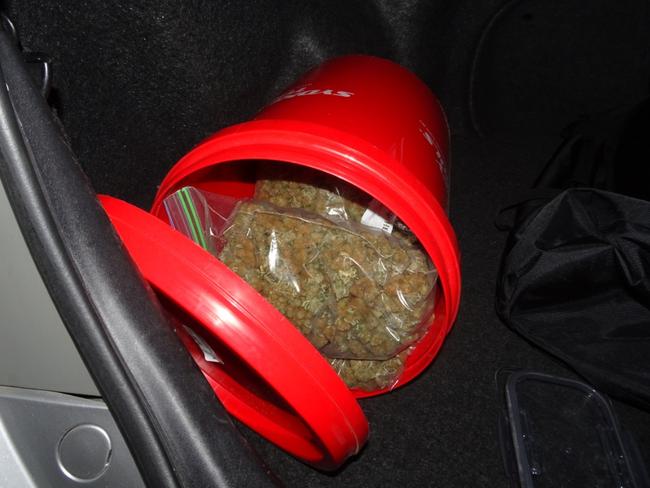
McCallum pleaded guilty to drug trafficking and prohibited weapons charges after police from the anti gangs squad, Taskforce Nemesis, also found knuckledusters, an extendible baton and a taser-like weapon when they executed a search warrant at his Gungahlin home and searched his car in August 2018.
McCallum is also facing charges for money laundering and dealing with the proceeds of crime after police seized the Lakeside Tattoo Parlour in July.

Prosecutor Anthony Williamson said the crown was “sceptical” about whether McCallum had left the gang, especially given he had not left the club an asset or financial compensation in exchange for his departure.
When Mr Williamson asked whether it was “pretty unusual” Ulavalu had “just let him go”, he responded: “Yes. Usually you have to give your bike up if you leave”.
Mr Williamson also questioned why he had not requested to be moved away from other members of the Comanchero in prison if he was genuine about leaving the gang.
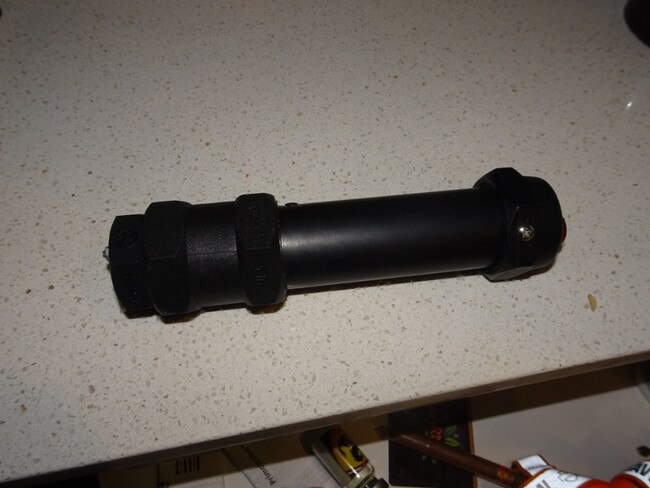
McCallum told the court he had been a fully patched Comanchero who held the rank of “road captain” before he resigned from the club a month ago.
He was also a member of the Rebels outlaw motorcycle gang for a short time about four or five years ago, the court heard.
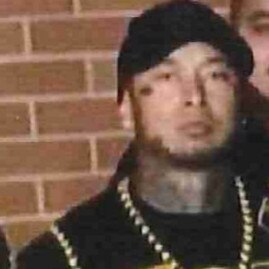
Mr Williamson was also sceptical of McCallum’s claims he had “sorted out” the money owed over the drugs seized by police and questioned whether he may need to commit offences upon his release to repay debts owing.
Defence barrister Steven Whybrow said his client had the “most powerful motivation” to change his life because he is about to become a father for the first time to a baby girl.
McCallum also had the support of his partner whom he is in a stable relationship with and who had a “zero tolerance” to any affiliations with bikers.
He also had employable skills, did not have an extensive criminal history and had the love and support of his family, who presented a united front at court on Tuesday.
The alternative was to continue rubbing shoulders with bikers in prison.
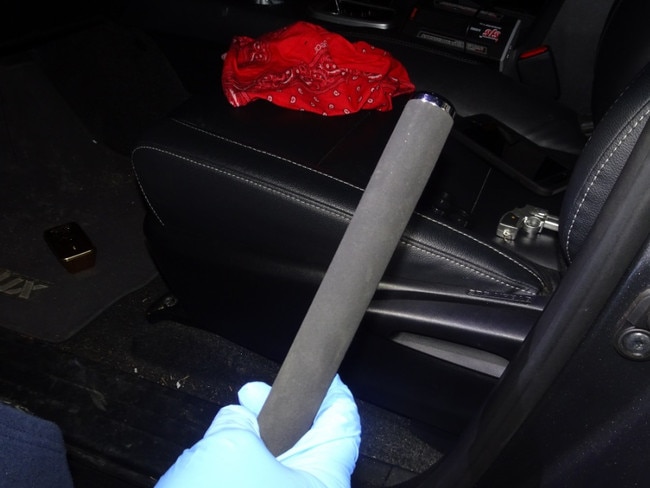
Mr Whybrow submitted McCallum represented a “gold standard” example of where an intensive corrections order, which is a prison sentence served in the community, could be applied.
If he found himself at court again, he would be dealt with more severely than if he had been handed a custodial sentence.
“It’s a double-edged sword for somebody who takes the high road and doesn’t stay on it,” Mr Whybrow said.
“There is not a single allegation this drug dealing was in a single way related to his membership (of the Comanchero).”
The court heard McCallum got involved in dealing to pay off a drug debt due to an addiction and that he was consuming one gram of cocaine every day by the time he was 28-years-old.
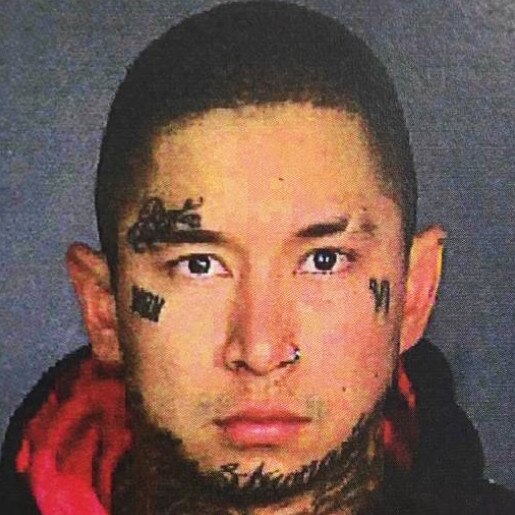
Mr Williamson submitted an Intensive Corrections Order would not be appropriate.
“While the defendant’s drug use was a contributing factor, the quantities are so large, that while that may have been an instigator, the offender has clearly gone beyond what was necessary to feed his addiction,” he said.
“A very significant quantity of drugs were being trafficked and there was a very clear commercial aspect to that.”
Chief Justice Helen Murrell said McCallum would be facing two years and ten months behind bars if she were to sentence him on Tuesday.
Howevern she adjourned his case to obtain an intensive corrections order assessment to determine whether he could serve his time in the community.
Chief Justice Murrell told the court McCallum’s early years were spent in an orphanage in Thailand where “emotional and physical deprivation” had led to a “strong need for acceptance and status”.
At the age of two he moved with his adoptive parents to Australia where he suffered racial abuse and bullying at school.
This and the sense of abandonment and anger he experienced at his parents’ separation when he was 11 led him to be “attracted” to the Comanchero gang.
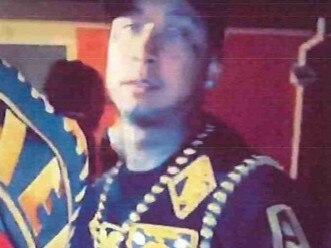
She said one must be “a little sceptical” as McCallum had only resigned four weeks ago in the context of the court proceedings being imminent.
“Nevertheless it appears he has resigned,” she said.
“I proceed on the basis that the offender is 31-years-of age, is someone with no relevant criminal history and has reasonably good prospects of rehabilitation.”
She accepted McCallum had a cocaine habit but the volume of the drugs involved and the discovery of $6000 in cash, electronic scales and cutting substances were indicative his actions had “grown to a commercial operation”.
However she said the facts suggested he was “toward the lower end of the drug distribution chain”.
The case was adjourned to November 7 to await the intensive corrections order assessment.
IN OTHER NEWS

